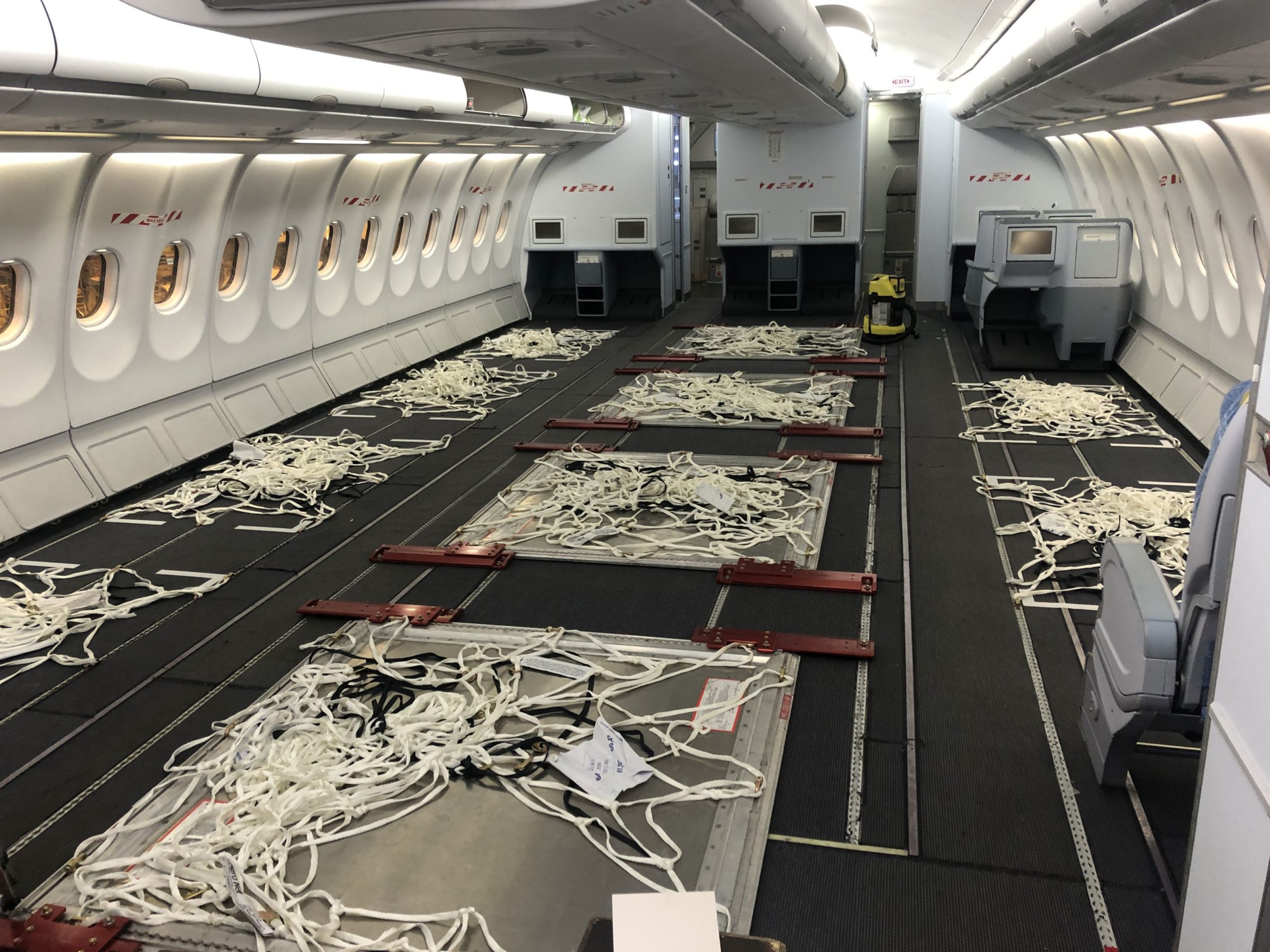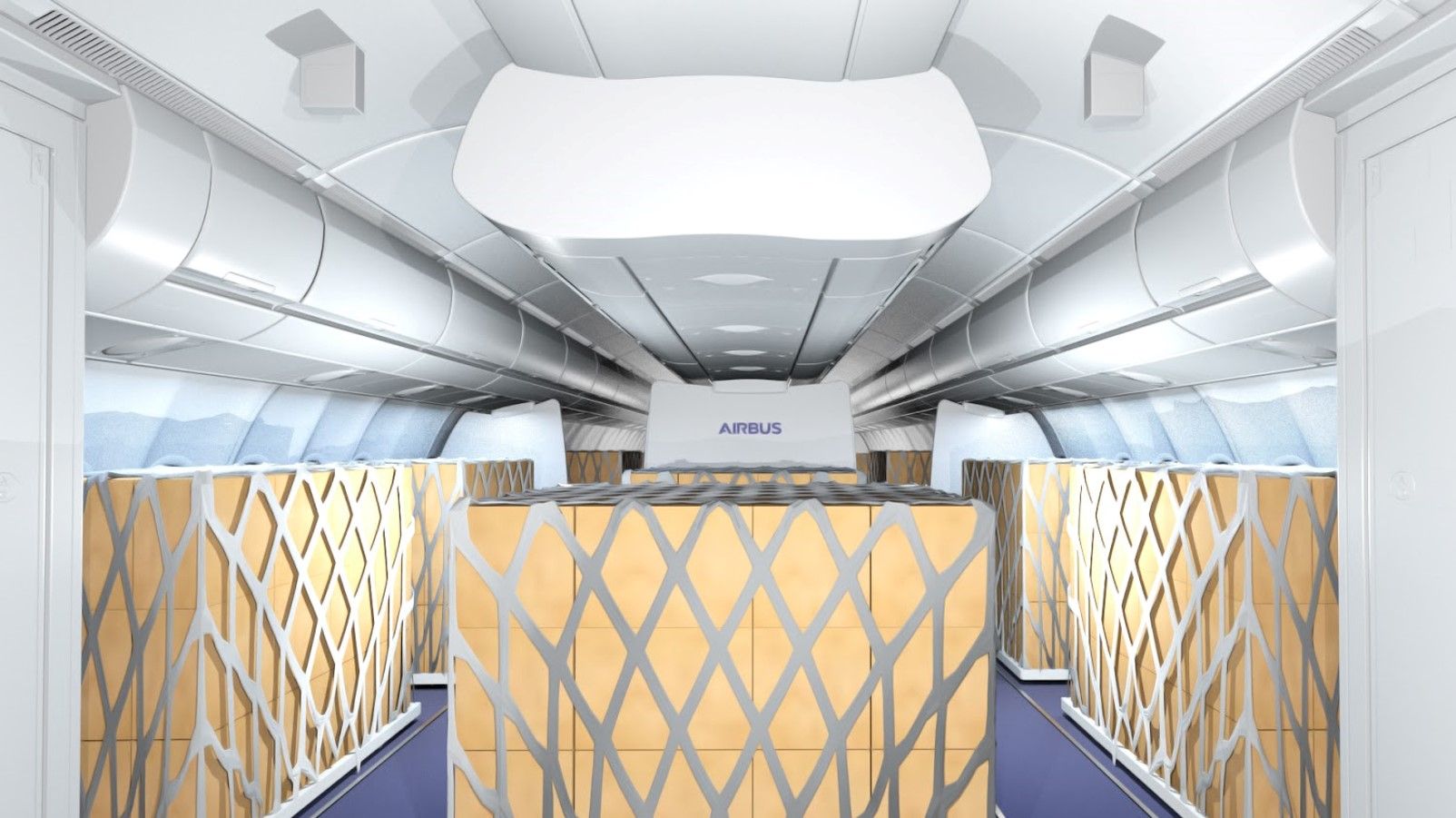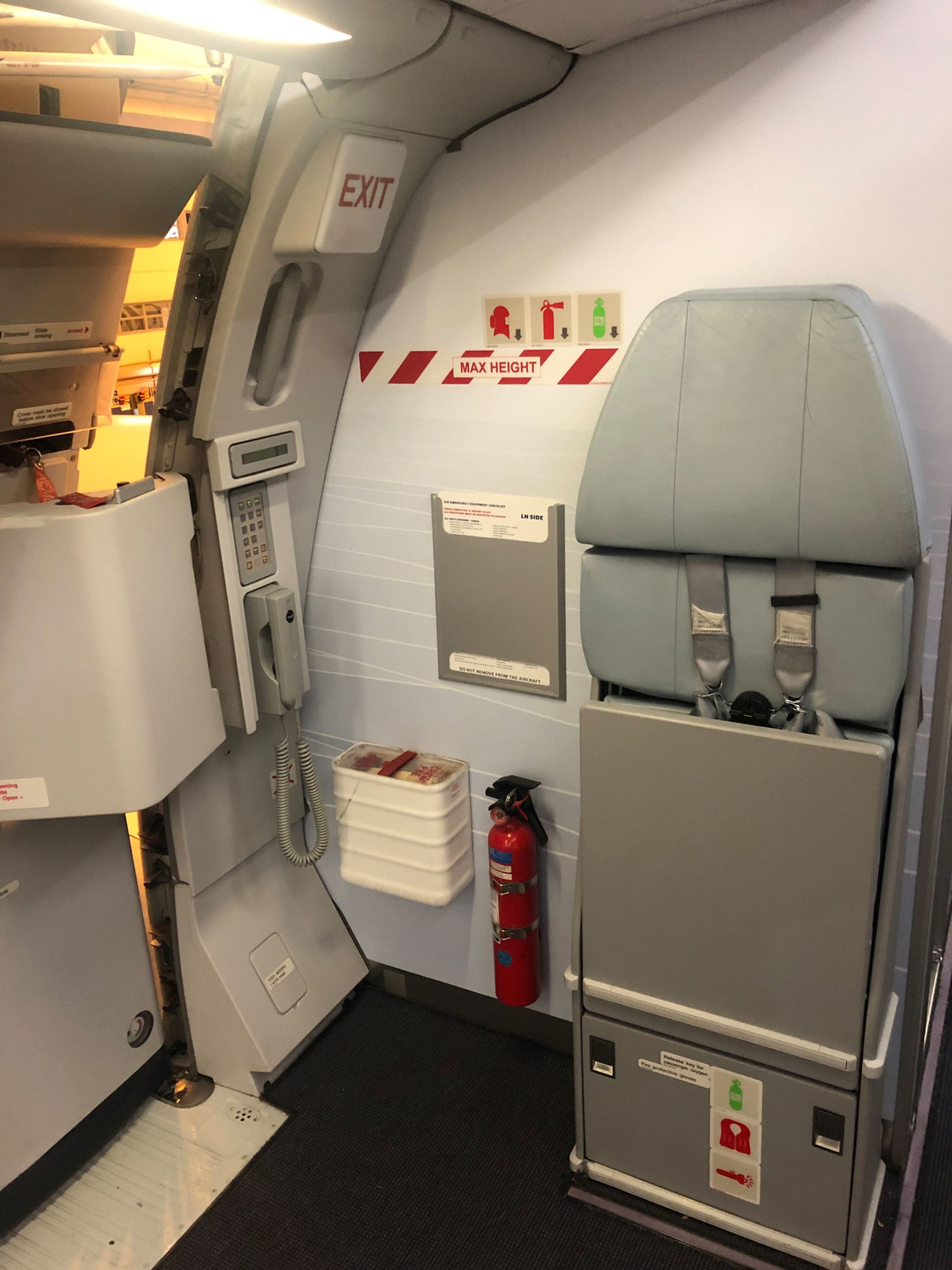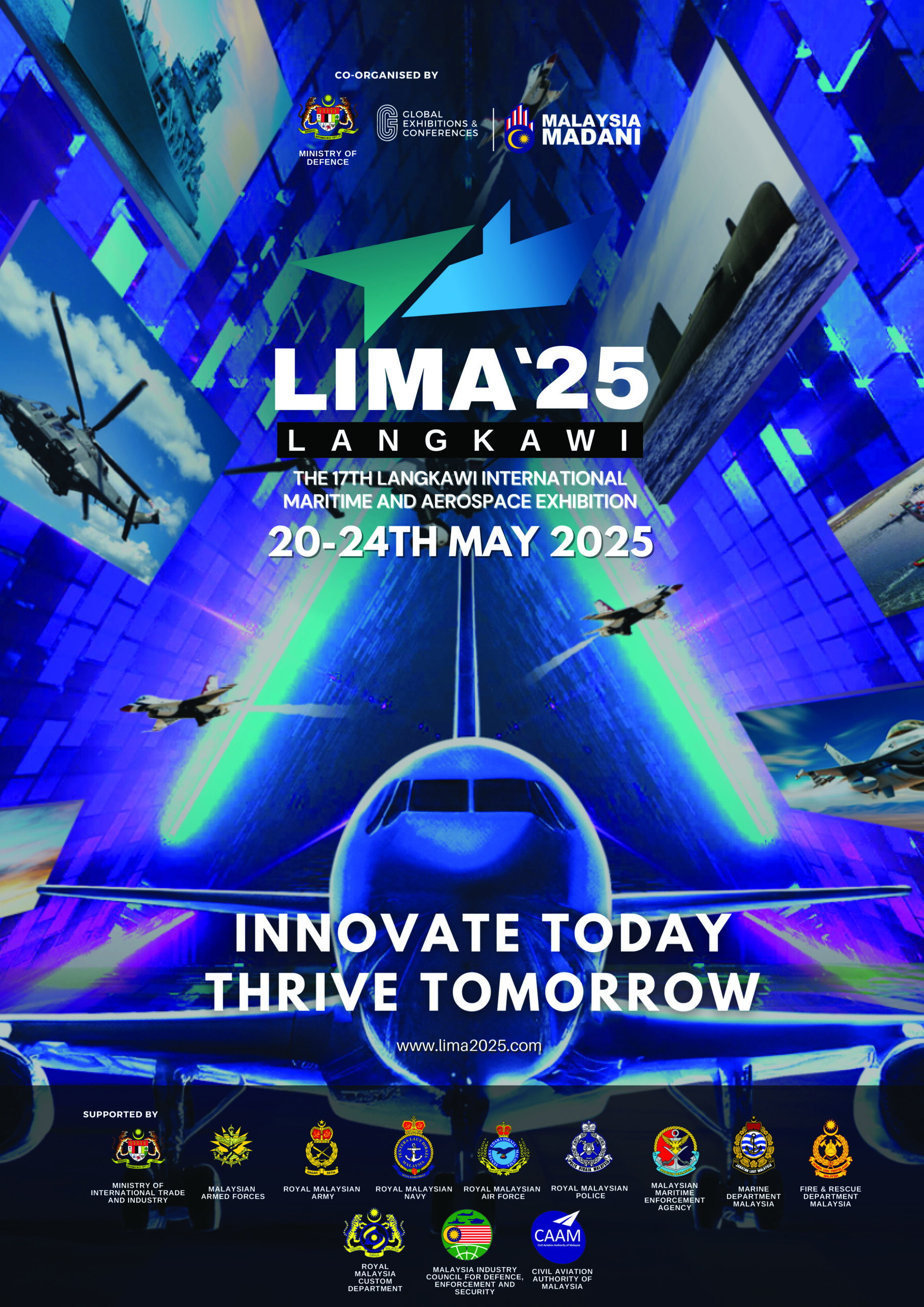 Lufthansa Technik and Airbus team up to offer customers a reversible Cargo-in-Cabin solution to satisfy urgent demand quickly and easily. The solution for the Airbus A330 family comprises the Supplemental Type Certificate (STC) as well as material kits to modify the passenger aircraft for temporary cargo transport. Cargo capacity is thus increased by up to 15t of additional payload depending on aircraft configuration. Finnair is the first airline to modify an Airbus A330-300 to carry commercial, non-dangerous goods in the main pax deck.
Lufthansa Technik and Airbus team up to offer customers a reversible Cargo-in-Cabin solution to satisfy urgent demand quickly and easily. The solution for the Airbus A330 family comprises the Supplemental Type Certificate (STC) as well as material kits to modify the passenger aircraft for temporary cargo transport. Cargo capacity is thus increased by up to 15t of additional payload depending on aircraft configuration. Finnair is the first airline to modify an Airbus A330-300 to carry commercial, non-dangerous goods in the main pax deck.
Due to the slow air traffic recovery belly capacity is still low and not likely to return until 2024 to pre-Covid level. Additionally, the exemptions granted by the authorities in the beginning of the pandemic to reuse passenger cabins to transport medical supplies expired. Together with Airbus, Lufthansa Technik now responds with the “Temporary Cargo Cabin”, an STC which allows to modify a passenger cabin into a cargo hold.
 “We join forces with Airbus in times of crisis to deliver the best solution for aircraft operators. We mutually benefit from each other’s expertise in many respects and thus create a blueprint for possible future co-operations”, says Soeren Stark, Chief Operations Officer & Accountable Manager at Lufthansa Technik. Daniel Wenninger, Airbus’ VP Airframe Services, “The cooperation with Lufthansa Technik enables the smooth implementation of this temporary cargo solution. The A330’s best in class operational economics and versatile cabin makes it the perfect aircraft for cargo missions in the current context. With such a new solution, we keep on supporting our Airbus customers.”
“We join forces with Airbus in times of crisis to deliver the best solution for aircraft operators. We mutually benefit from each other’s expertise in many respects and thus create a blueprint for possible future co-operations”, says Soeren Stark, Chief Operations Officer & Accountable Manager at Lufthansa Technik. Daniel Wenninger, Airbus’ VP Airframe Services, “The cooperation with Lufthansa Technik enables the smooth implementation of this temporary cargo solution. The A330’s best in class operational economics and versatile cabin makes it the perfect aircraft for cargo missions in the current context. With such a new solution, we keep on supporting our Airbus customers.”
 Frontrunner Finnair
Frontrunner Finnair
Finnair is the launch customer for the “Temporary Cargo Cabin”: The operator modified an Airbus A330 at its home base in Helsinki lately, the approval process for the STC is underway. The simple embodiment can be carried out at any Part 145 provider worldwide. “With this EASA Approved STC solution we are able to continue our successful cargo operations even during ramp-up. The solution is technically simple and does not require massive investments like traditional cargo conversions”, adds Juha Ojala, Vice President of Finnair Technical Operations
Comprehensive technical solution to fulfill EASA requirements. Typically, the embodiment of the “Temporary Cargo Cabin” includes removal of seats and monuments depending on the individual layout and customer needs. This also comprises, e.g., that seat-to-seat IFE harnessing has to be de-installed or water supply interfaces have to be plugged temporarily. The solution foresees to install standard TSO (Technical Standard Order) approved pallets with special brackets on the seat tracks in the center column of the aircraft and create additional positions in the lateral areas ensuring an optimal use of the A330 cabin. The bulk cargo will be secured with standard TSO approved nets. As part of the material kit, Lufthansa Technik provides a cabin kit and firefighting equipment to be in line with cabin safety requirements of EASA.

















